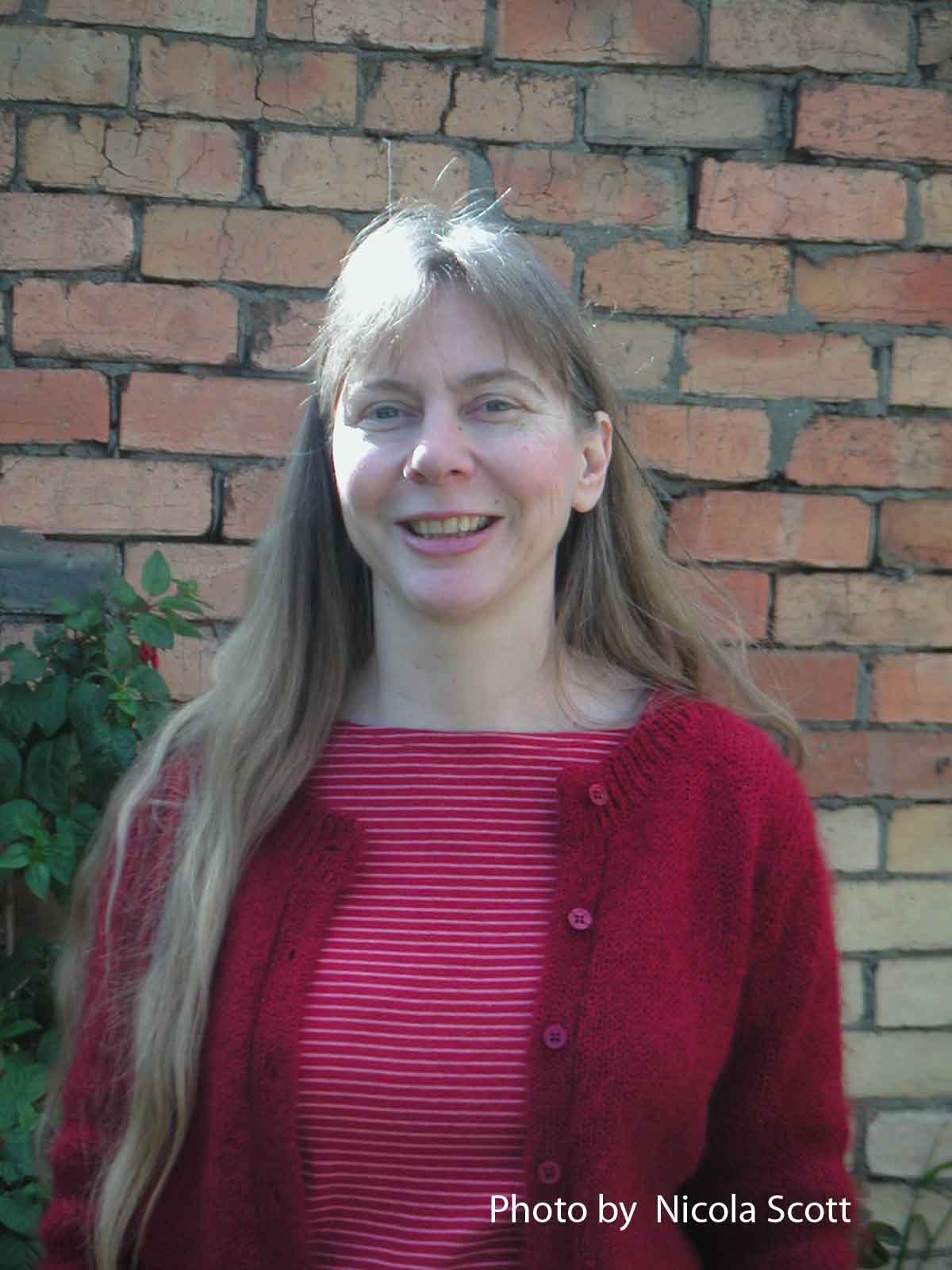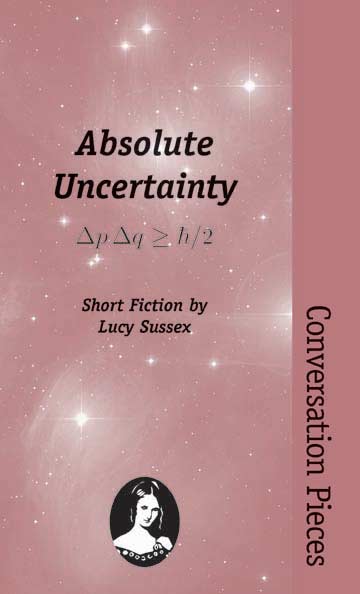Lucy Sussex

Lucy Sussex
I was born in the South Island of New Zealand, the landscape of which is
now familiar worldwide from Peter Jackson's Lord of the Rings films. The
city where I was born, Christchurch, doesn't figure in his trilogy, but in
an earlier Jackson film, Heavenly Creatures (where Kate Winslet made her
debut), about the murderesses Juliet Hulme and Pauline Parker. Indeed I
have a connection with the originals of that film: my father used to go out
to Papanui Women's Prison to teach French to Pauline Parker. He said she
was a very nice young woman.
The family was Australian, migrants from the British Isles, who all
apparently emigrated voluntarily—although one ancestor was an absolute
scoundrel, as I discovered at a family reunion. His deeds included selling
one son into indentured servitude, little better than slavery, in payment
of a gambling debt. He might not have been transported, but he surely
improved Britain by leaving it. Nearly all the ancestors were working
class, and such were the opportunities of the new land that within several
generations we were solidly professional. My father taught French at
University level, which meant I went to the Northern hemisphere twice by
boat by the time I was eleven. My first school was a French convent,
despite not being (a) Catholic, (b) speaking a word of French. "I'm afraid
we're heretics," my mother told the head nun. Heretics or not, my sister
Polly got the part of the Virgin Mary in the school play.
When I was eleven I wrote (but failed to complete) what would be now
classed as a fantasy novel, called The Whisper Trees, about fairy
mice. Prophetic though this exercise might have been, it got thoroughly
sidetracked by more globetrotting, ending when my father got a job in
Townsville, tropical Queensland. I hated it. The first Christmas I was
there a major cyclone hit, and things did not improve subsequently. I
started reading science fiction in quantity, no doubt because I wanted to
escape. At that stage I wanted to be a poet and got my first publication
as a teenager in the anthology Neon Signs for the Mutes (1976). It must
have been a fruitful project, because, of the contributors, Paul Grabowski
became a famous jazz musician, and there were three future novelists: me,
Antoni Jach and fantasy writer Tony Shillitoe. But the chance of a Science
Fiction workshop in Sydney, 1979, with George Turner and Terry Carr, set me
off on the track of science fiction.
Which is where I've continued ever since, with diversions into children's
fiction (after a children's editor sent me my first-ever fan letter),
horror, crime, true crime and Victoriana. Due to a family history of late
marriages and long lives, the Victorian era was only a generation or so
away from me, recalled via anecdotes and artifacts, including a Victorian
dollhouse. Little did I know that this (not necessarily an interest, but
certainly a presence) would turn into a major research preoccupation. In
the 1980s I got frustrated working as a librarian and got a job
researching crime fiction for Professor Stephen Knight. Within months I had
stumbled across a previously unknown early female crime writer, Mary
Fortune, which led to a PhD and (nearly completed) a book on the mothers of
crime fiction—a bunch of wild but prolific women.
These days I work as a reviewer, researcher (latterly in the fin de siécle)
and squeeze in my original fiction where I can. The bibliography includes
four books for teenage or younger readers, three editions of Victorian
prose, and four anthologies, of which She's Fantastical (1995) was shortlisted for
the World Fantasy Award. My one adult novel, The Scarlet Rider, combines
crime, Victoriana and the fantastic. A second one is in process, involving
quantum physics and werewolves.
(Photo by Nicola Scott.)

|